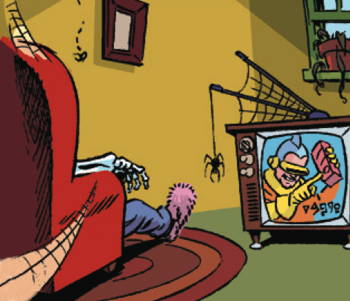September 2021
September 20, 2021
Wearable Soft Toys
From designer Venla Elonsalo.More info: Instagram, venlaelonsalo.com
via @_gastt


Posted By: Alex - Mon Sep 20, 2021 -
Comments (3)
Category: Fashion, Dolls and Stuffed Animals
Mrs. America Contest of 1950
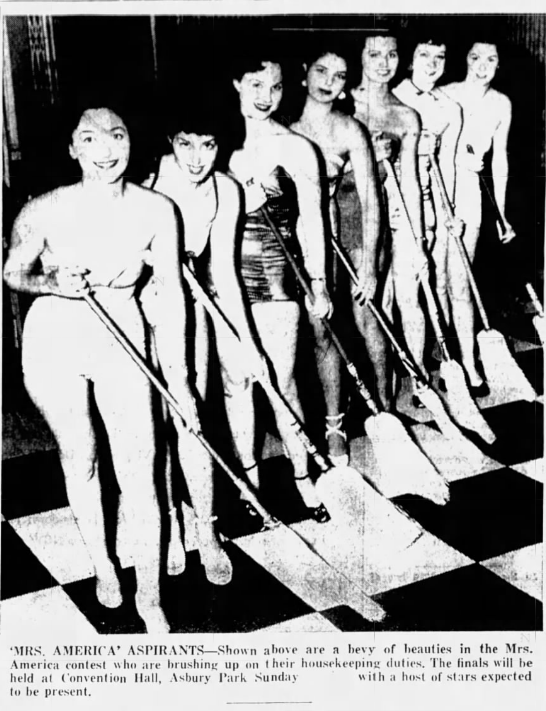
Source of first clip below: Florence Morning News (Florence, South Carolina) 21 Aug 1950, Mon Page 6
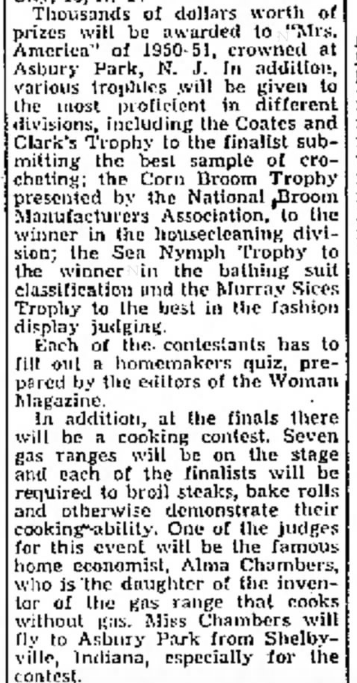
Source of main article below (also photo above): The Daily Record (Long Branch, New Jersey) 08 Sep 1950, Fri Page 7
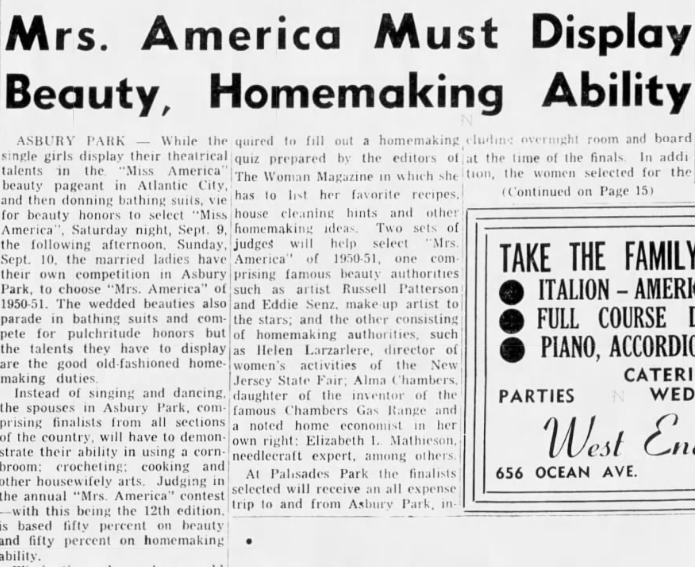

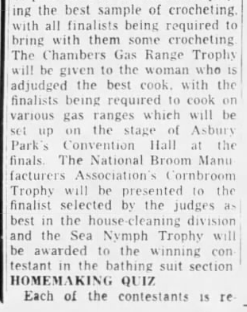
Posted By: Paul - Mon Sep 20, 2021 -
Comments (2)
Category: Awards, Prizes, Competitions and Contests, Beauty, Ugliness and Other Aesthetic Issues, Domestic, 1950s
September 19, 2021
Ralph Woltstem’s Breast Supporters
Back in the 1920s, Ralph Woltstem reimagined the brassiere. He did away with the straps around the shoulders and instead used columns to provide support from below. These columns, in turn, incorporated shock absorbers. He was granted two patents for this invention. The device in both patents looks pretty much identical to me. The images are from Patent No. 1762676, and the explanatory text below is from Patent No. 1741898: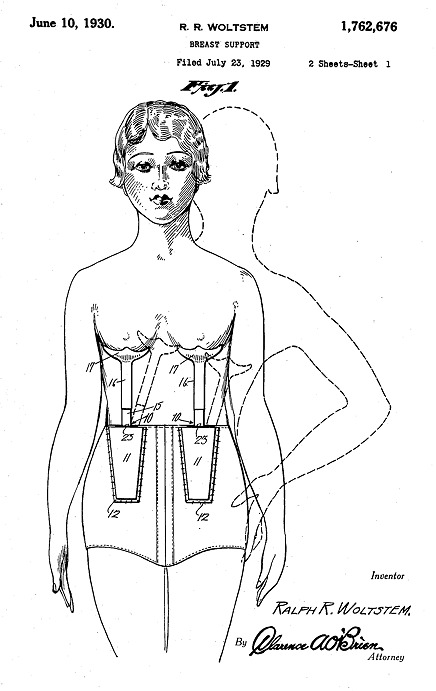
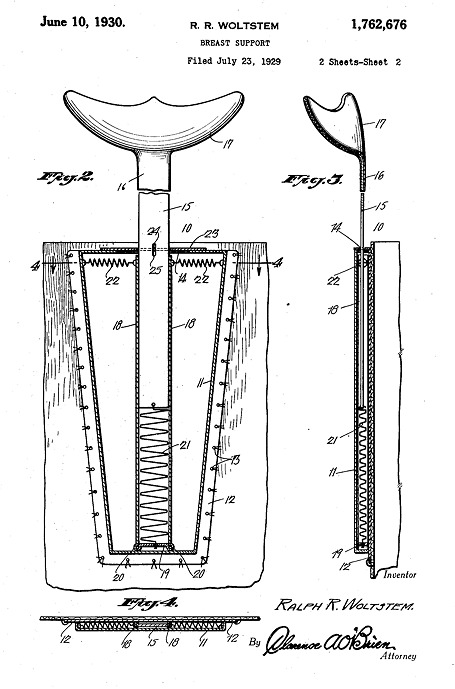
Posted By: Alex - Sun Sep 19, 2021 -
Comments (3)
Category: Patents, Underwear, 1920s
Unlikely Reasons for Murder No. 6
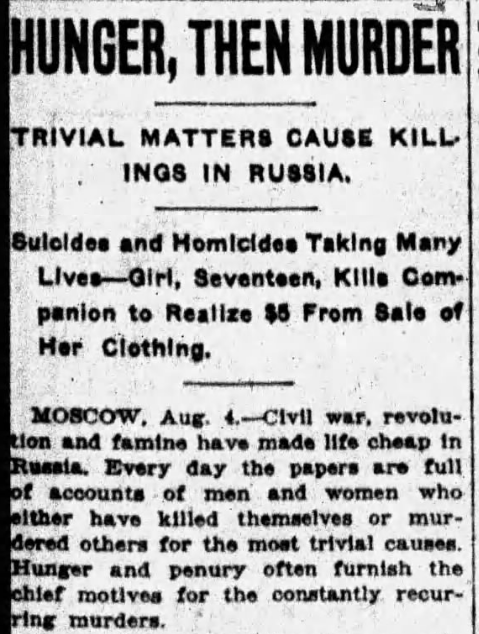
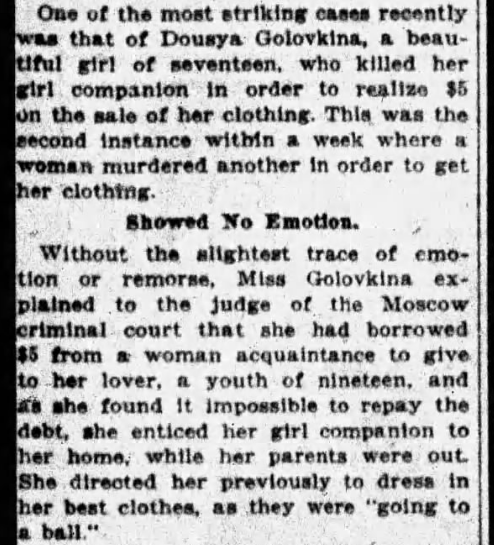
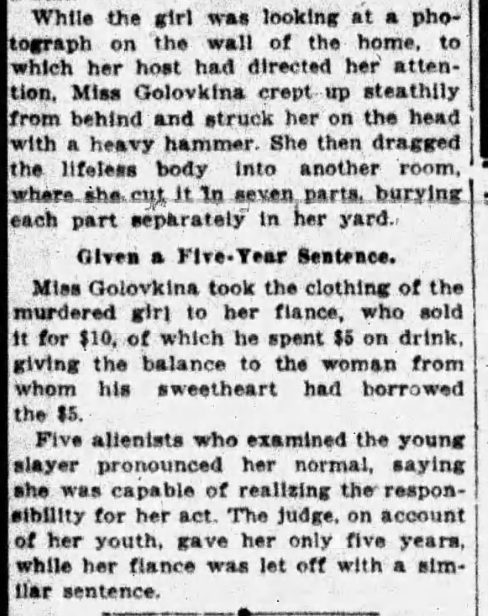
From the ST. JOSEPH NEWS-PRESS, August 4, 1924
Posted By: Paul - Sun Sep 19, 2021 -
Comments (0)
Category: Crime, Death, 1920s, Russia
September 18, 2021
The Alaskan Slot Machine
1990: Customers of a laundromat in Anchorage, Alaska frequently complained that the slot machine in the establishment never paid out any money, even if a winning combination came up, and one of them eventually called the police about it.The police initially agreed that it seemed like theft to never pay out winnings, so they confiscated the slot machine. But then the owner of the laundromat explained that the machine was deliberately fixed to not pay off, because gambling was illegal in Alaska. Furthermore, a small sign next to the machine said that it was "For Amusement Only". Perhaps, he conceded, the sign was not prominent enough, but it was there nevertheless.
Upon hearing this, the police decided the slot machine was legal and let the owner take it back.

Daily Sitka Sentinel - Jan 4, 1990

Tampa Bay Times - Mar 17, 1996
Posted By: Alex - Sat Sep 18, 2021 -
Comments (3)
Category: 1990s, Gambling, Casinos, Lotteries and Other Games of Chance
America Hurrah!
The recent obituary for the playwright Jean-Claude van Itallie brought my attention to his masterwork, America Hurrah. Two caveats:1) The players in these clips appear to be amateurs.
2) You are encountering the parts out of order and incomplete, and might have missed something important.
Nonetheless, after the first clip, let us know when you bail! But wait! Maybe you'll need the second segment to make up your mind.
Posted By: Paul - Sat Sep 18, 2021 -
Comments (0)
Category: Ineptness, Crudity, Talentlessness, Kitsch, and Bad Art, Theater and Stage, 1960s
September 17, 2021
A stereo for 299 bananas
I posted a month ago about a case from 1965 in which a car dealer advertised, and then had to sell, a new Pontiac sedan for "1,395 bananas."Turns out this isn't the only time a merchant has run into trouble using the word 'bananas' as slang for 'dollars.'
In 1986, the discount electronics chain Silo ran a TV ad offering a new stereo system for only "299 bananas." Thirty-five people showed up with the appropriate number of bananas, expecting to get a stereo. The store gave 33 of them stereos, and credited the other two for the cost of the bananas.
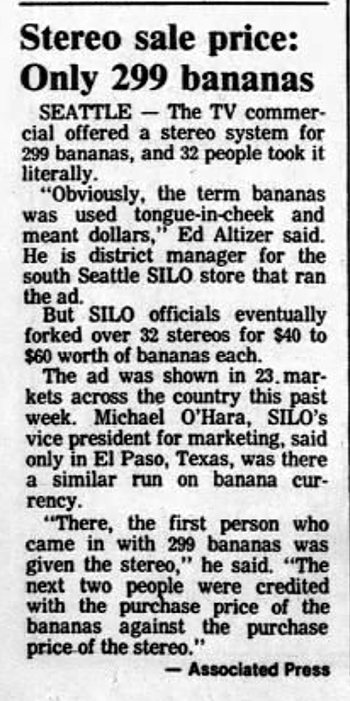
Lafayette Journal and Courier - May 1, 1986
For more info, check out this article on the Priceonomics blog. It notes that Silo ended up stuck with around 11,000 bananas that they had to get rid of:
Posted By: Alex - Fri Sep 17, 2021 -
Comments (0)
Category: Business, 1980s, Bananas
Isaac Parker, the Hanging Judge
His Wikipedia page tells us:Parker became known as the "Hanging Judge" of the American Old West, because he sentenced numerous convicts to death.[1] In 21 years on the federal bench, Judge Parker tried 13,490 cases. In more than 8,500 of these cases, the defendant either pleaded guilty or was convicted at trial.[2] Parker sentenced 160 people to death; 79 were executed.
Read a memoir that appeared two years after his death at this link.
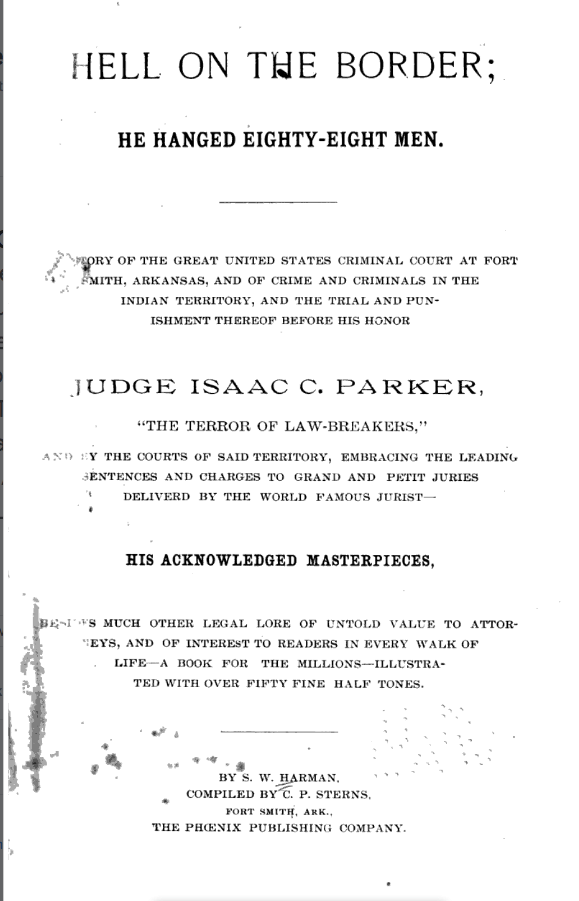
Posted By: Paul - Fri Sep 17, 2021 -
Comments (2)
Category: Death, History, Wild West and US Frontier, Law, Books, Nineteenth Century
September 16, 2021
Banana Label Collecting
Banana-label collecting is not only a thing. It has an active community of collectors.One of the top collectors is Becky Martz who now has over 22,630 labels. She's archived them at her website, Becky's Gone Bananas.

You can also check out the BananaLabel Catalog of the Produce Real Society. There's not many labels to see on their website, but they sell a master catalog of 31,000 labels going all the way back to 1913.

Posted By: Alex - Thu Sep 16, 2021 -
Comments (5)
Category: Collectors, Bananas
Killer Tomatoes
My partner grafts tomatoes for our garden. Must caution against this!Source: The Knoxville News-Sentinel (Knoxville, Tennessee) 31 Oct 1963, Thu Page 14
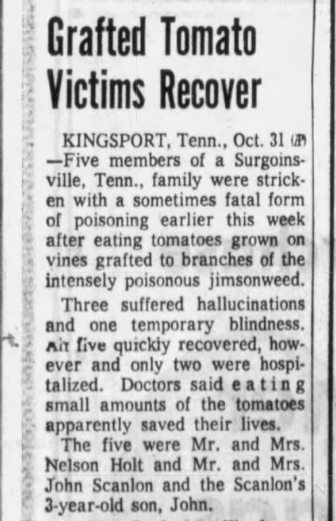
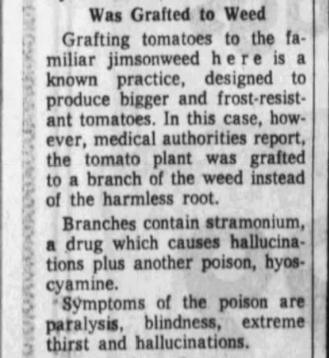
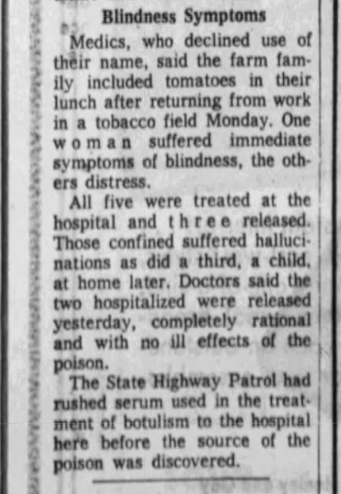
Posted By: Paul - Thu Sep 16, 2021 -
Comments (2)
Category: Family, Food, Psychedelic, 1960s, Goofs and Screw-ups
| Get WU Posts by Email | |
|---|---|

| Who We Are |
|---|
| Alex Boese Alex is the creator and curator of the Museum of Hoaxes. He's also the author of various weird, non-fiction books such as Elephants on Acid. Paul Di Filippo Paul has been paid to put weird ideas into fictional form for over thirty years, in his career as a noted science fiction writer. He has recently begun blogging on many curious topics with three fellow writers at The Inferior 4+1. Chuck Shepherd Chuck is the purveyor of News of the Weird, the syndicated column which for decades has set the gold-standard for reporting on oddities and the bizarre. Our banner was drawn by the legendary underground cartoonist Rick Altergott. Contact Us |
